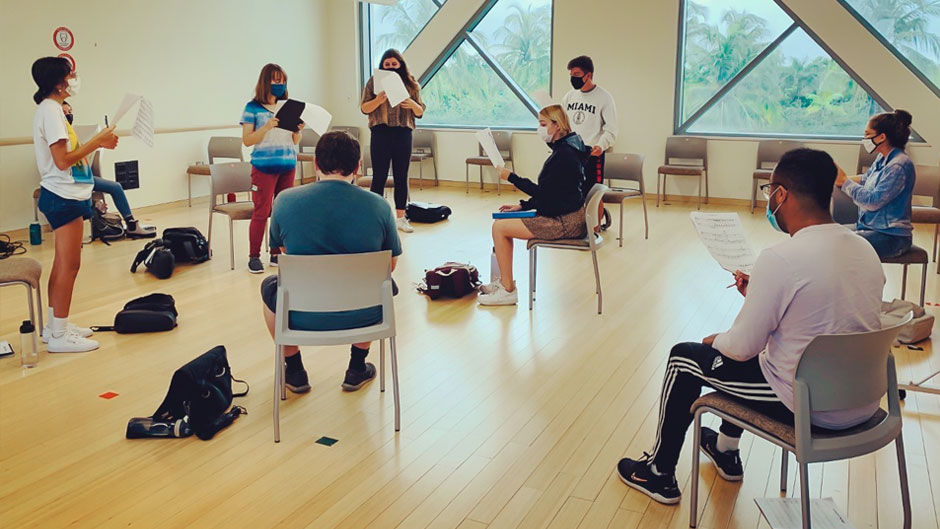With the fall semester in full swing, leaders of the arts and humanities share how faculty, staff, and students are stepping up to the plate and continually encouraging and sharing creativity despite the pandemic.
Hugh Thomas, director of the Center for the Humanities
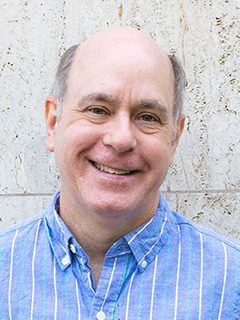
Last spring, COVID-19 threw the programming for the Center for the Humanities into chaos—canceling and rescheduling events, coping with staff furloughs, and figuring out how to work on a reduced budget. The impact continues this year, as we have postponed planned campus visits by prestigious scholars until the following year. But we also viewed the pandemic as an opportunity to engage people in the community with essays and fiction. Over the summer, we set up a virtual reading group in which we discussed Ross Gay’s “Book of Delights,” selections from Boccaccio’s “Decameron,” and short stories from the New York Times’ “Decameron Project,” the last of which explores life in the current pandemic. Though for the coming year we are bringing some outside speakers to campus virtually, the big story has been UM faculty adjusting and stepping up to the plate. Book Talks, our ongoing series presenting faculty scholarship, normally held at Books and Books, will be virtual this year, And a number of faculty have also agreed to participate in a new series, Humanities Hour, that involves presenting humanities research to a general audience.
Jill Deupi, director of the University of Miami’s Lowe Art Museum
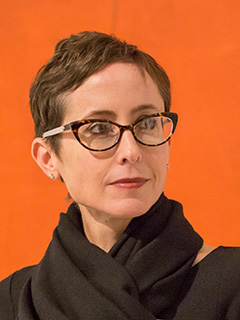
Since its founding in 1950, the University of Miami’s Lowe Art Museum has served our region as an essential resource for teaching, learning, engagement, and enrichment through art and culture. It has also functioned as a refuge and a haven, a gathering place and a social hub, a forum and an agora, a laboratory and a classroom, a catalyst for personal growth, and a change agent. In other words, for more than seven decades, the Lowe has borne witness to the power of art.
And while so much has changed in our world since March 16, when the museum pivoted from in-person experiences to all-digital ones, what has remained constant is not only our commitment to serving a plurality of audiences through our work but also the clear impact—intellectual, mental, and emotional—that art continues to have on people from all walks of life as they navigate these extraordinarily challenging times. Through the more than 100 digital programs and experiences that the museum has made freely available to all since March, the Lowe has been able to directly engage with more than 4,000 participants from across our community, throughout the country, and around the globe. An additional 25,000 individuals have browsed our growing menu of non-programmatic digital resources, with which more than 2,200 have actively engaged.
Now more than ever, we need to feel a sense of purpose and connectedness while also feeding the mind, soothing the soul, and grasping hope for a brighter tomorrow. Art does all of this, and more! And that is the power of art.
Charles Eckman, dean of UM libraries
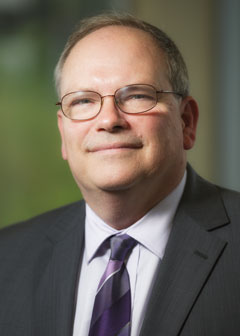
“Libraries throughout history have persisted in the face of disasters wrought by humans or natural events. The UM Libraries never missed a step and did not close in the face of the pandemic—we continued to provide 24/7 access to our considerable digital resources; we worked intensively with faculty to create fully digital reading lists; we flipped all of our in-person consulting and teaching programs to chat, email, phone, and videoconference; and we virtualized our events programming beginning with a hugely popular weekly Mindfulness session and our summer partnership with the Mainly Mozart Festival. As our facilities reopen, we are taking steps to ensure that we have created safe environments for the student study based on consultation with students and University leadership.”
Shelton G. Berg, dean of the Frost School of Music
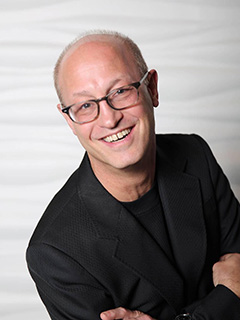
“We are excited to be back on campus for the fall semester. For the past few months, we have been diligently working with UM leadership to provide a safe and stimulating environment in order to help our students keep their education on track. At the Frost School, in addition to on campus and virtual classes, we are planning events to enhance the academic year for all students. This includes outdoor safe-distance student concerts, virtual and in-person guest artists and teacher residencies, enhanced chamber music experiences, and deeper training in the Frost School’s industry-leading Frost Method curriculum. The COVID-19 situation is fluid and dynamic and we continue to make decisions guided by facts to ensure safety and educational excellence for all. Music is a great tonic and in coming together as musicians and musical scholars, we are healing ourselves and others. We all long for the day when music venues will be filled with patrons who need the life-affirming and transcendent gift that music provides. That day will hopefully come before we know it, and when it does, the graduates of the Frost School of Music will be exemplars in guiding music’s future.”
J Tomas Lopez, professor and chair of the Department of Art and Art History
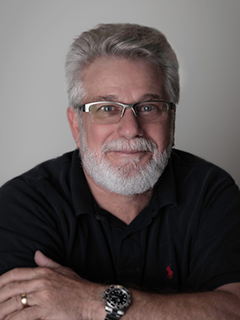
It’s impossible to keep artists down. During this pandemic, artists have found myriad ways to create, share, and exhibit their work. These include Zoom workshops and lectures as well through online exhibitions. Art can serve as a cathartic tool. If the past five months has shown us anything it is our need to remain connected to keep our hopes up. Since April, Milly Cardoso, our gallery director has been posting monthly virtual exhibitions helping us maintain a presence in the larger art community. The good news is that after a four-month hiatus, we are back in the studios and labs teaching our students the philosophy and practice of art. The second bit of good news is that beginning in September, we are reopening the UM Wynwood Art Gallery to the UM student, staff, and faculty community—albeit by appointment only.
Milly Cardoso, gallery director at the UM Wynwood Art Gallery
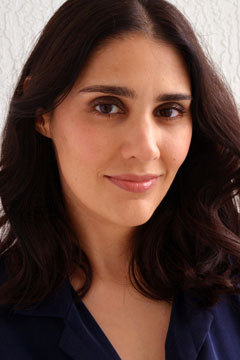
Creating artwork is forever work. During quarantine, I saw how our students stayed creative by changing their approach. They had to create work in tiny rooms, using whatever they had on hand, working under intense pressure, and feeling fear and uncertainty about the future. The exciting part is creativity thrives under these conditions. Art critic Jerry Saltz said, “Creativity was with us in the caves. It is one of our most primary survival tools.” I couldn’t agree more; this is how we move forward. Art will always play a role in times of uncertainty; it will always be here. Our students are resilient and able to adapt. Their job is to stay in the arena and believe in what they’re doing. Watching the joy they get out of doing the work reminds me of what I love about this field, the passion our students bring to their art is inspiring.
The following is a list of resources to help you stay connected to the arts at the University of Miami.
Wynwood Art Gallery
2020 Incoming Graduate Student Exhibition
The Department of Art and Art History in the College of Arts and Sciences at the University of Miami presents the work of incoming Master of Fine Arts graduate students.
Featuring artists:
Rachel Alderton (printmaking)
Neenah, Wisconsin
Anthony Magnetti (ceramics)
Cedar City, Utah
To view the online exhibit click here.
Frost School of Music
September 3, 7:30 p.m.
Mozart, Virtual Seminar Part 1: Demon and Angel
Wolfgang Amadeus Mozart is a double-faced figure. The popular image of the composer depicts him in turn as demon or angel, stormy Dionysus or sunny Apollo. In this virtual talk, Matteo Magarotto, lecturer in musicology at the Frost School of Music, will explore the origins of these two Mozarts, retracing the path that led from the earliest biographies, through Romantic-period tales, to the influential play (and film) Amadeus. A plenitude of musical examples will highlight—but also complicate—Mozart’s two-face image. (And if you are wondering whether Salieri poisoned Mozart, your curiosity should be satisfied.) This is the first of a three-talk series on Mozart, taking place on Zoom.
September 10, 7:30 p.m.
Mozart, Virtual Seminar Part 2: Parodist and Comedian
In this virtual talk, Matteo Magarotto, lecturer in musicology at the Frost School of Music, will survey the range of Mozart’s comedic attitudes, detailing familiar ideas about the composer as jester while also highlighting the cultural bases of Mozart’s humor with its traditional Austrian flavor. It is an evening of informative fun, with many amusing examples—one that also raises critical issues of social hierarchy, gender, and race. This is the second of a three-talk series on Mozart, taking place on Zoom.
September 17, 7:30 p.m.
Mozart, Virtual Seminar Part 3: Myth and Icon
In this virtual talk, Matteo Magarotto, lecturer in Musicology at the Frost School of Music, will attempt to unravel the entanglement of history and myth underpinning Mozart’s popular image, examining how the myths were born and still survive. We will encounter early rumors about his death, fanciful anecdotes, a forgery, and pseudo-scientific claims about classical music and IQ. And we will discover how the literary trail of Mozart fiction (from E. T. A. Hoffmann through Pushkin to Shaffer) helped sustain the myths. Will a beloved Mozart remain standing at the end? Come and find out. This is the last of a three-talk series on Mozart, taking place on Zoom.
To purchase tickets to the Mozart online Lecture Series visit https://ci.ovationtix.com/1811/.
September 19, 7:30 p.m.
Frost Symphony Orchestra—Gerard Schwarz, director
Join the Frost Symphony Orchestra for the passionate and beautiful performance of George Walker’s Lyric for Strings, Richard Strauss’s Metamorphosen, and Rodion Shchedrin’s Suite for String and Percussion.
To attend the online broadcast visit www.frostmusiclive.com.
Lowe Art Museum
September 8, 15, 22, and 29 1-2 p.m.
The Art of Mindfulness
Join the Lowe Art Museum for a live virtual guided mindfulness practice. Recharge, refresh, and cultivate greater present moment awareness with our two guided mindfulness practices. Mindful Looking, offered three times a month, invites participants to focus attention in different ways on a work of art from the Lowe’s collection. Mindful Sitting, offered the first Tuesday of the month, features a traditional guided mindfulness sitting practice.
The Art of Mindfulness, established in 2016, was developed as a collaboration between the Lowe Art Museum and Miami Law’s Mindfulness in Law Program. Guided practices are offered in partnership with UMindfulness and Mindfultime.
To register, follow the links below:
9/8: attend.com/LowemindfulnessSept8
9/15: attend.com/LowemindfulnessSept15
9/22: attend.com/LowemindfulnessSept22
9/29: attend.com/LowemindfulnessSept29
To learn more about the Lowe’s reopening plans visit https://www.lowe.miami.edu/.
September 16, 6:00 p.m.
Connect and Create
Connect and Create will be a monthly offering through the summer by the Lowe Art Museum and HR Workplace Equity and Inclusion. Each session will use a different work of art to guide us in understanding and practicing techniques to encourage diversity of thought and candid communication.
During this one-hour workshop we’ll use art as a medium for communication and learn simple techniques to encourage diversity of thought at work and home. We’ll practice slowing down, staying neutral, and creating an environment where different perspectives are valued and encouraged.
Connect and Create is open to all staff and faculty. A different work of art will be utilized during each session making each conversation new and distinct.
To ensure a high quality, interactive experience participation is limited. No art experience is necessary.
To register click here.
September 17, 2020 at 5:30 p.m.
Lowe Connects “La Noche de Cultura” (The Night of Culture)
Join the Lowe as we celebrate Hispanic Heritage month with an exploration of identity, religion, and politics represented in Latin American and Hispanic works of art in the Lowe’s collection. This program has been developed in partnership with the UM Hispanic Heritage Month Committee; the Lambda Theta Alpha Latin Sorority, Inc.; and The Alliance of Latin American Students. Nathan Timpano, associate professor, director of Graduate Studies, and head of Art History within the Department of Art and Art History at the University of Miami, and Tracy Devine Guzman, associate professor and director of Graduate Studies Department of Modern Languages and Literatures Program in Latin American Studies, will lead the presentation and facilitate interactive discussions about current issues impacting Latin and Hispanic cultures through the study of these artworks. After the initial presentation, participants will join break-out room conversations to allow for more audience participation and interaction. The program is free and open to the public. Donations will benefit the Hispanic Student Scholarship Fund.
To register click here.
Center for the Humanities
September 16, 8:00 p.m.
Online Book Talk with Professor of Classics, Jennifer Ferriss-Hill.
Horace's Ars Poetica: Family, Friendship, and the Art of Living: For two millennia, the "Ars Poetica" (Art of Poetry), the 476-line literary treatise in verse with which Horace closed his career, has served as a paradigmatic manual for writers. Rarely has it been considered as a poem, or else it has been disparaged as a great poet's baffling outlier. Here, Jennifer Ferriss-Hill for the first time fully reintegrates the "Ars Poetica" into Horace's oeuvre, reading the poem as a coherent, complete, and exceptional literary artifact intimately linked with the larger themes pervading his work.
To register click here.
September 24, 7:00 p.m.
Stanford Lecture Online: "Are Decolonial Humanities Possible?": In place of our traditional Stanford Distinguished Professors series, the Center is pleased to offer a Stanford Lecuture Online series. Professor Nelson Maldonado-Torres, chair of the Program in Comparative Literature and director of the Rutgers Advanced Institute for Critical Caribbean Studies at Rutgers University, will present the first online lecture of the year.
To register click here.
UM Libraries
Wednesdays, beginning September 2, 4:00 p.m.
Mindfulness Online
The University of Miami Libraries offers introductory mindfulness sessions for cultivating calm and focus. These 45-minute sessions introduce the fundamentals of mindfulness with periods of guided practice and opportunities for reflection and questions.
To register, complete this form for all September sessions.
September 10, 1:00 p.m.
Selling Some Sand: The Marketing of Miami Beach, presented by Cristina Favretto
Using materials culled from the archives, rare books, and ephemera of Special Collections, Cristina Favretto will take you back to the early years of Miami Beach, when a motley assortment of civic boosters, con men, and impresarios "sold some sand" to the collective imagination of travelers yearning for warm weather and fun in the sun.
Taking a close look at promotional materials of the era. This brief but entertaining conversation will cover the less-than-glamorous beginnings of South Beach, graphic design styles, and even a history of the bathing suit. Join us for this trip to the beach and bring your sunglasses!
To register click here.
Thursday, September 17, 11:00 a.m.
"El efecto Mariel: Before, During, and After—The Exile Community Responds: Solidarity and Stigmatization"
Beginning in April of 1980, and over the span of a few months, more than 125,000 Cuban refugees arrived on the shores of South Florida after fleeing the island via the Port of Mariel. How did the established Cuban community in Miami respond to this new influx of Cuban refugees who were more racially and culturally diverse, and whose experiences on the island were in many ways quite different? The panelists will address this fundamental question from a variety of perspectives.
Register here.
